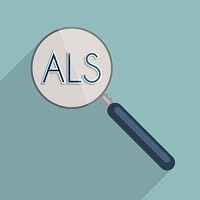ALS Genetics Probed
So far, gene studies have not shed much light on the question of how ALS develops and who gets the disease. A geneticist says the studies have to be bigger, wider, and deeper.

Though only 5% to 15% of cases of amyotrophic lateral sclerosis (ALS) are clearly linked to family history, researchers suspect that genetics plays a larger role than has been documented.
Writing in JAMA Neurology Russell Lewis McLaughlin, PhD and colleagues at Trinity College in Dublin, Ireland’s Smurfit Institute of Genetics calls for large-scale genome sequencing of patients with ALS.
In a review of existing studies, McLaughlin noted that genetic factors are widely considered to contribute to “sporadic” ALS, defined as all cases that have not been clearly demonstrated to be linked to a family history of the disease.
Mysteriously, though, despite increasingly large genome-wide association studies, the search for specific gene loci has not borne fruit.
“A substantial proportion of sporadic and familial ALS cases remain to be explained by genetic risk factors and the question of the ‘missing heritability’ of ALS is therefore an ongoing focus of intensive international research,” the team wrote.
Some scientists have suggested this search be abandoned, that researchers are “chasing ghosts” in hoping that genetic studies will lead to better understanding and cures for many diseases.
Particularly controversial is an analysis known as “genome-wide complex trait analysis” (GCTA), a software program and tool that looks for genetic similarities in unrelated people using large databases, then looks for correlations to the incidence of disease.
Such studies have been done to look for traits that may contribute to getting ALS.
McLaughlin believes this approach has promise.
“Twin and pedigree studies tell us that a large proportion of ALS is likely to be due to genetic risk factors, and the different but complementary outcome of GCTA analyses tells us that these risk factors are incompletely tagged by common variation in the genome,” he wrote.
The implication is that undiscovered genetic causes of ALS are probably “numerous and rare,” and possibly from de novo mutations.
“Although this renders the discovery of causative mutations more challenging, it supports the necessity of larger and more fine-grained genetic studies in ALS,” he wrote. Those should include “next-generation sequencing as the preferred method for the discovery of genetic risk factors.”
Genome sequencing in families with ALS, and continuing studies of ALS in identical twins “will help to identify and expanding number of de nova mutations that will in turn contribute to our incomplete understanding of this devastating disease,” he concluded.